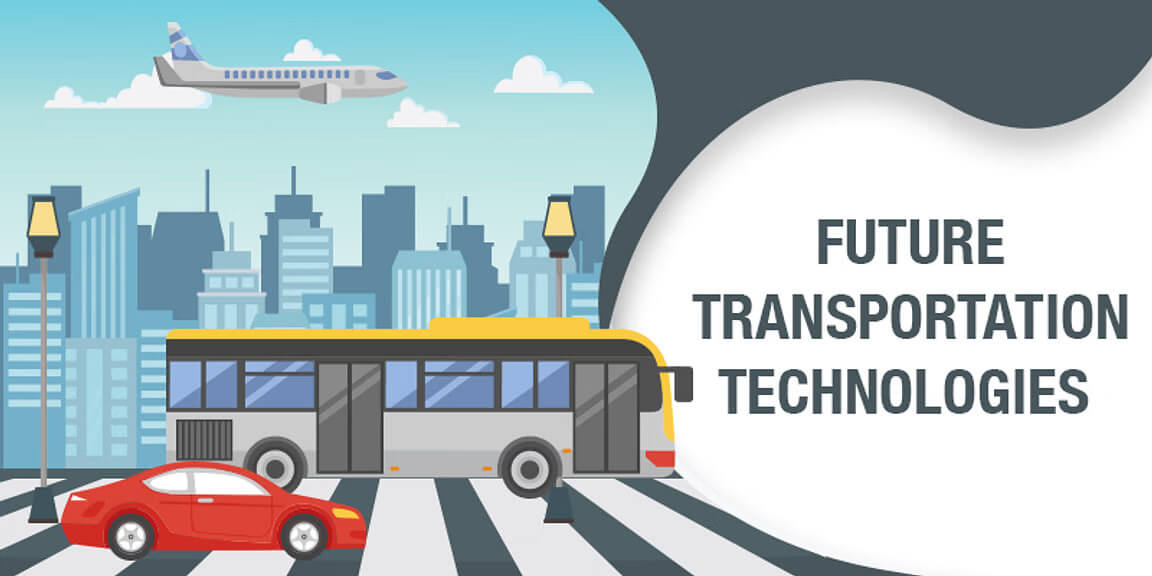The future of transportation is undergoing a revolutionary transformation, driven by the integration of cutting-edge technology and sustainable practices that aim to redefine how we travel. Electric vehicles (EV’s) have emerged as a key player in promoting sustainable mobility, accompanied by ongoing infrastructure developments that support the growth of the electric vehicle industry. Integrating AI in electric vehicle technologies has further enhanced efficiency and safety, paving the way for a more sustainable and eco-friendly transportation ecosystem. Additionally, the emergence of hyperloop technology has redefined high-speed travel, offering a glimpse into the potential of a futuristic transportation system that prioritizes speed, efficiency, and sustainability. As the transportation industry continues to embrace technological innovations and sustainable solutions, the future of transportation holds the promise of a more interconnected, efficient, and environmentally conscious global mobility network.
Electric Vehicles and Sustainable Mobility
Electric vehicles (EVs) have spearheaded the movement toward sustainable mobility, offering an eco-friendly alternative to traditional combustion engine vehicles. Advancements in EV technology have significantly improved battery efficiency, range, and charging capabilities, driving the widespread adoption of electric cars across various sectors. However, the transition to overall EV usage has challenges, including robust charging infrastructure, battery production sustainability, and addressing range anxiety concerns. Despite these challenges, the increasing demand for sustainable transportation options continues to fuel the development and adoption of electric vehicles, marking a significant step toward a more sustainable and environmentally friendly future of transportation.
Infrastructure Development for the Electric Vehicle Industry
The growth of the electric vehicle industry heavily relies on developing a robust and efficient infrastructure that supports the widespread adoption of electric vehicles. Establishing an extensive network of charging stations, battery-swapping facilities, and renewable energy sources is crucial in facilitating the seamless integration of electric vehicles into the transportation ecosystem. Infrastructure development initiatives to enhance accessibility, affordability, and convenience for EV users are essential in encouraging the transition to sustainable mobility and fostering a more sustainable and eco-friendly transportation landscape.
AI Integration in Electric Vehicle Technologies for Efficiency and Safety
Integrating artificial intelligence (AI) in electric vehicle technologies has revolutionized modern transportation systems’ efficiency and safety standards. AI-driven features such as predictive maintenance, autonomous driving capabilities, and advanced driver-assistance systems (ADAS) have enhanced electric vehicles’ overall performance, reliability, and safety, making them more appealing and accessible to a broader consumer base. By leveraging AI capabilities, electric vehicle manufacturers continue to innovate and develop advanced technologies that improve the driving experience and prioritize efficiency, sustainability, and safety in transportation.
Hyperloop and Future Transportation
Hyperloop technology has emerged as a game-changing innovation in future transportation, redefining the concept of high-speed travel and connectivity. The development of hyperloop systems aims to revolutionize how individuals and goods are transported, offering a sustainable, efficient, and high-speed transportation alternative that significantly reduces travel time and enhances connectivity between cities and regions. The potential of hyperloop technology in transforming the future of transportation holds the promise of a more interconnected and accessible global mobility network, fostering a more efficient and sustainable approach to long-distance travel and transportation logistics.
The Potential of Hyperloop Technology in Revolutionizing Travel
The potential of hyperloop technology lies in its ability to revolutionize travel and transportation, offering a sustainable and efficient alternative to conventional modes of long-distance travel. By leveraging magnetic levitation and low-pressure tube systems, hyperloop technology enables high-speed travel that significantly reduces travel time and energy consumption, making it a promising solution for enhancing regional connectivity and fostering sustainable transportation networks. Despite the challenges associated with implementing hyperloop infrastructure, the ongoing advancements and research in hyperloop technology continue to showcase its potential in reshaping the future of transportation, offering a more sustainable, efficient, and environmentally conscious travel experience for individuals and businesses alike.
Overcoming Obstacles in Implementing Hyperloop Infrastructure
Implementing hyperloop infrastructure is challenging, as developing and deploying hyperloop systems require extensive planning, investment, and collaboration between public and private stakeholders. Overcoming regulatory approvals, land acquisition, safety standards, and public acceptance obstacles are crucial in establishing a comprehensive and interconnected hyperloop network that effectively serves the transportation needs of various regions and communities. By addressing these challenges and fostering a collaborative approach to hyperloop implementation, the transportation industry can unlock the full potential of hyperloop technology in redefining the future of transportation and promoting a more sustainable and efficient global mobility network.
Sum Up
The future of transportation is undergoing a transformative shift, fueled by the integration of innovative technologies and sustainable practices that aim to redefine how we travel. From the advancements and challenges of electric vehicles to the potential of hyperloop technology in revolutionizing high-speed travel, the transportation industry prioritizes technological innovations and sustainability initiatives that foster a more efficient, interconnected, and environmentally conscious global mobility network.












